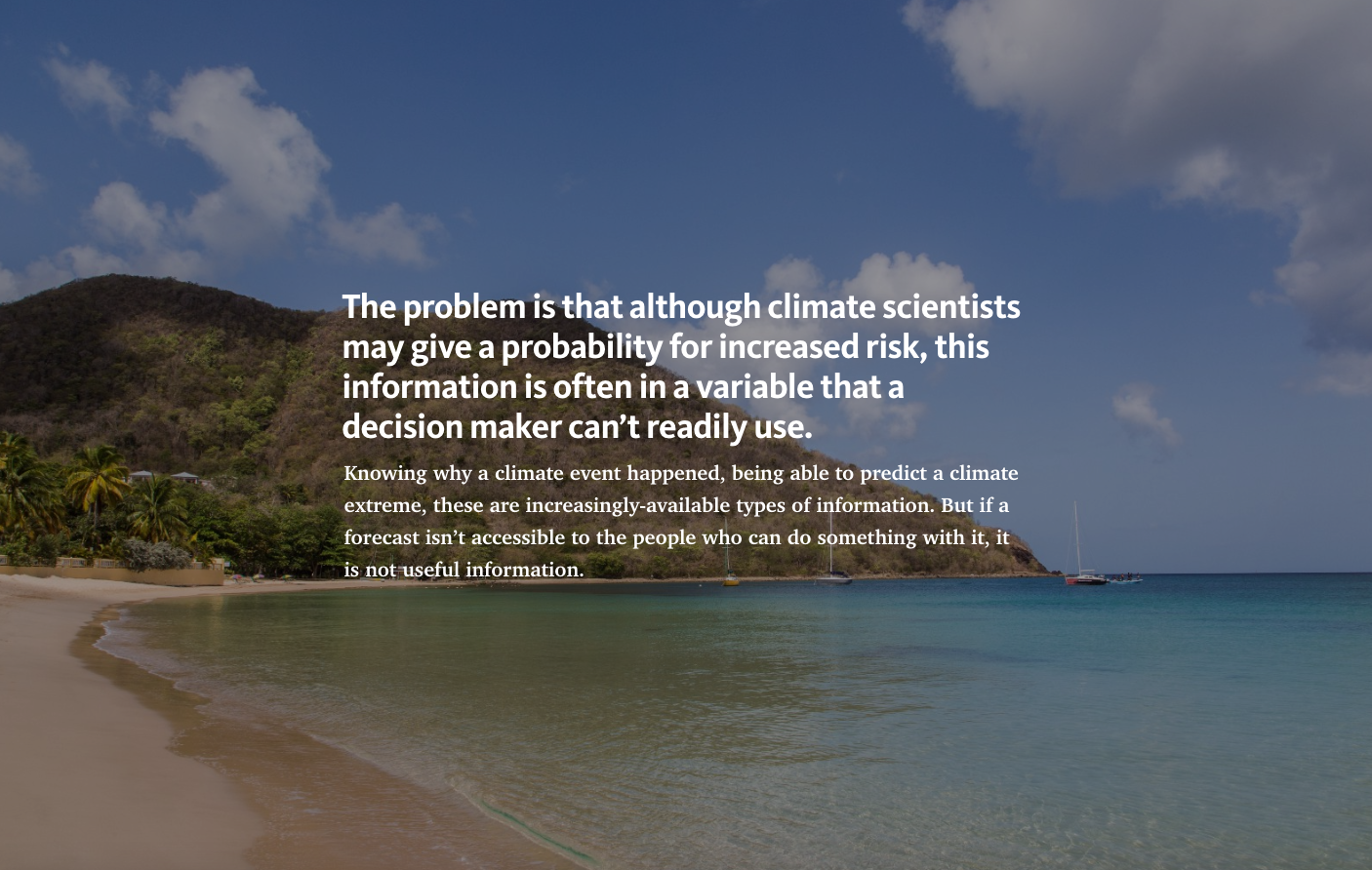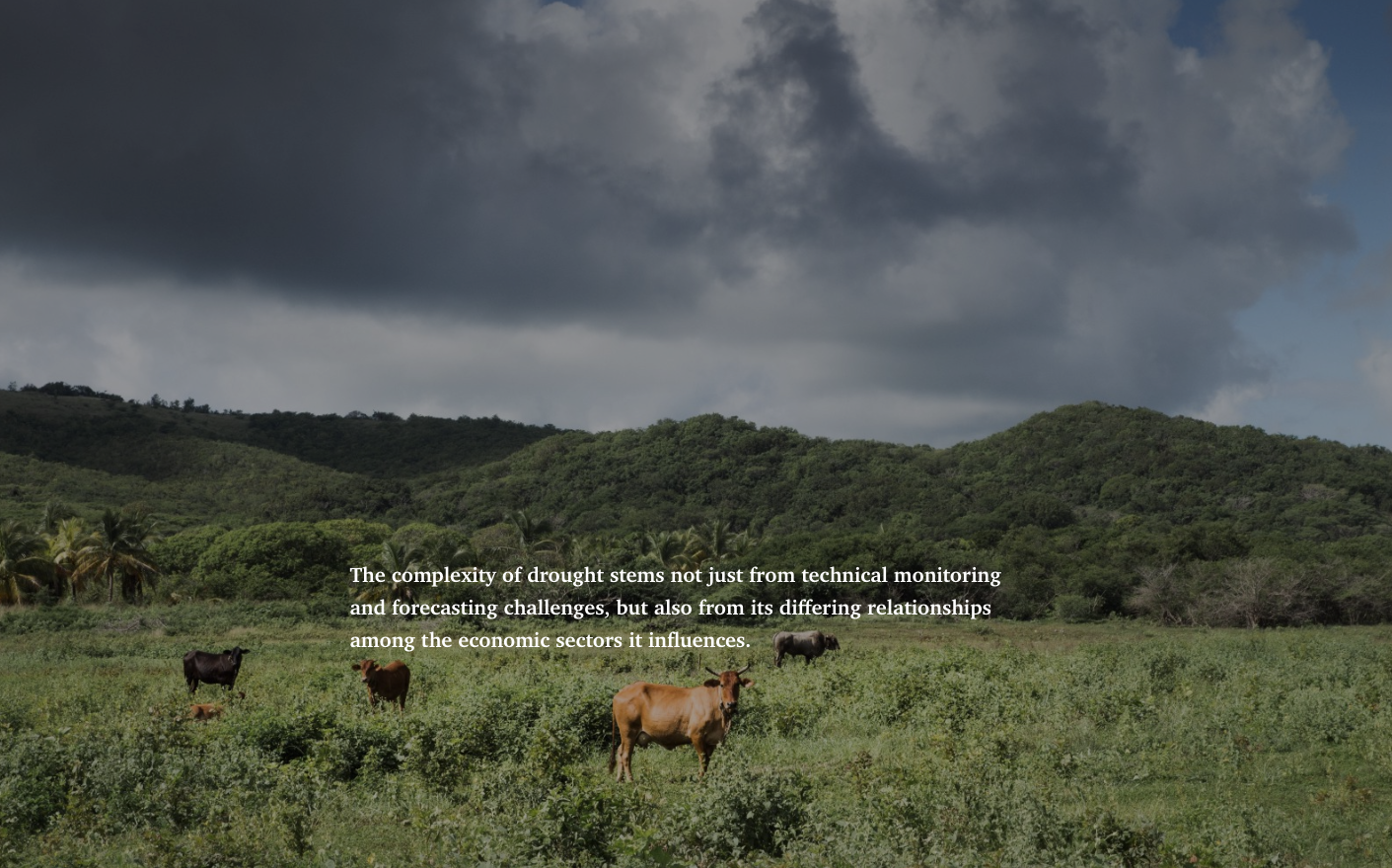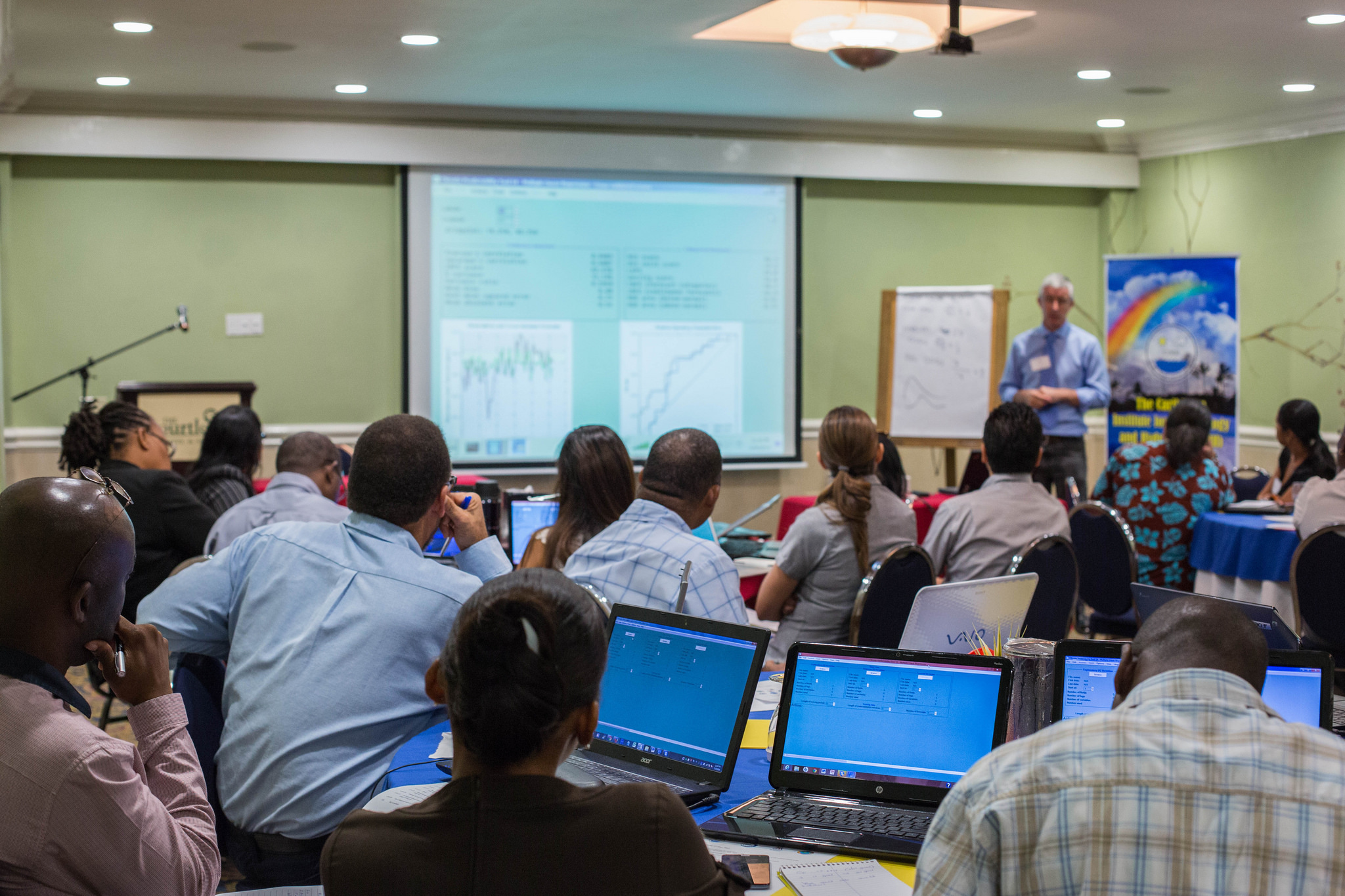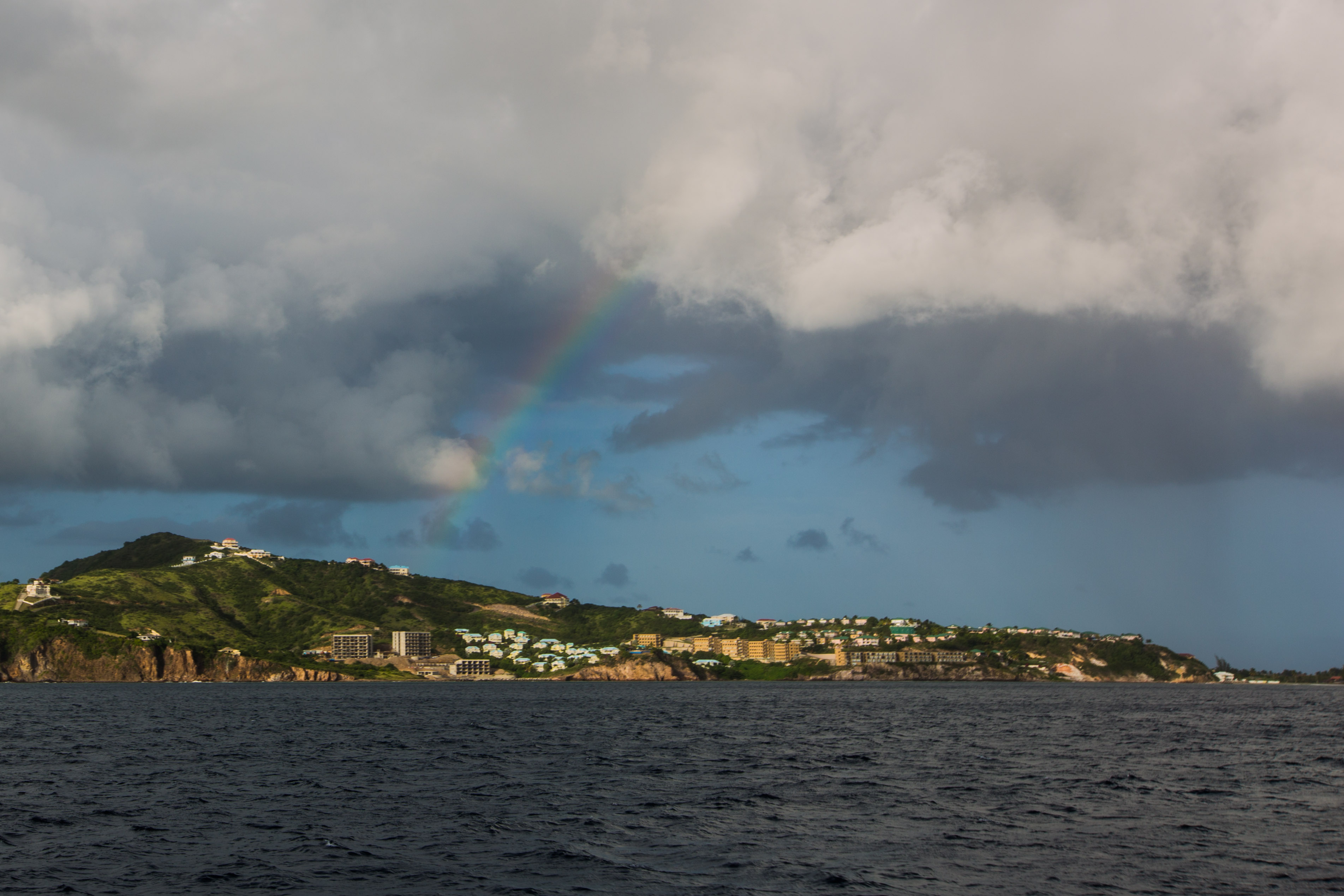About CariCOF
The Caribbean Climate Outlook Forum, also known as CariCOF, brings together climate scientists and meteorologists with decision-makers who may be able to use climate information. During the meeting, now held twice a year—once at the beginning of the dry season and once at the beginning of the wet season—the scientists present forecasts to experts in climate-sensitive sectors such as health, agriculture and water resources. The Caribbean Institute for Meteorology and Hydrology organizes the event.
CariCOF is one of many regional Climate Outlook Forums held around the world. The forecasts presented at COFs are usually seasonal forecasts for precipitation, though some regions present forecasts at other timescales, and some regions include other forecast products like temperature and outlooks for drought or food security. As explained by Simon Mason from the International Research Institute for Climate and Society in this Q&A, the forecast is produced through a consensus building process among national, regional and international climate experts. In most cases this occurs during a face-to-face meeting of the forecasters immediately prior to the COF.
“The National Oceanic and Atmospheric Administration (NOAA) and the European Commission sponsored the first COFs in southern Africa in 1997 as a way to bring together national meteorological and hydrological services, other national centers of expertise and regional and international institutions. IRI was involved from the very start, helping to shape the purpose and procedure of the meetings. COFs quickly spread to other parts of Africa as well as South America. Thanks to strong support from the World Meteorological Organization, they have now expanded to cover most parts of the habitable world.”
The Dry Season 2015 CariCOF was held in St. Kitts in late November 2015. It was sponsored in part by the Programme for Building Regional Climate Capacity in the Caribbean (BRCCC Programme), a three-year project made possible with the generous support of the American people through the United States Agency for International Development. Other sponsors included Environment Canada and the National Oceanic and Atmospheric Administration. The photos and videos on this site were all taken during that event, unless otherwise noted. For more on previous CariCOF events see the below links.
June 2015: Wet Season Outlook, Castries, St. Lucia

Minds on the Information Gap: Climate risk management in the Caribbean, an educational approach
November 2014: Dry Season Outlook, St. John’s, Antigua

One Size Fits None: Drought Forecasting in the Caribbean
May 2014: Wet Season Outlook, Kingston, Jamaica

Live from Kingston: It’s CariCOF | VIDEOS
The Forecasts
At the heart of CariCOF are the forecasts. Scientists gather for several days before the event to learn new techniques, discuss challenges in forecasting and come to a consensus on the current forecast. They then present the forecasts to decision-makers in sectors such as health, water and agriculture. The climate scientists also take time to get feedback from the decision-makers on the presentation of the forecasts as well as what other kinds of climate information might be useful.
Why CariCOF?
In the videos below, participants explain why they attend CariCOF, what they get out of it and why they think it’s needed.
Drought’s No Game
Drought is a recurring issue in the Caribbean, and one that directly impacts the essential economic sectors of agriculture and tourism. Other impacts of drought are less obvious, such as flooding vulnerability in Dominica. As water rationing becomes a reality in some countries, resource-intensive desalination plants are looked to as an option.
While most climate scientists understand the technical aspects of drought, many are less familiar with how decisions are made to direct resources in preparing for and alleviating the impacts of drought. A drought tournament activity at CariCOF illuminated some of the options and constraints for policy-makers dealing with drought.
Research and Innovation
As the twice-annual CariCOF events continue, scientists and decision makers want to improve the research that leads to forecast innovations as well as communication of existing climate-related information. Here are some participants’ outlooks on best practices and ways to move forward.
